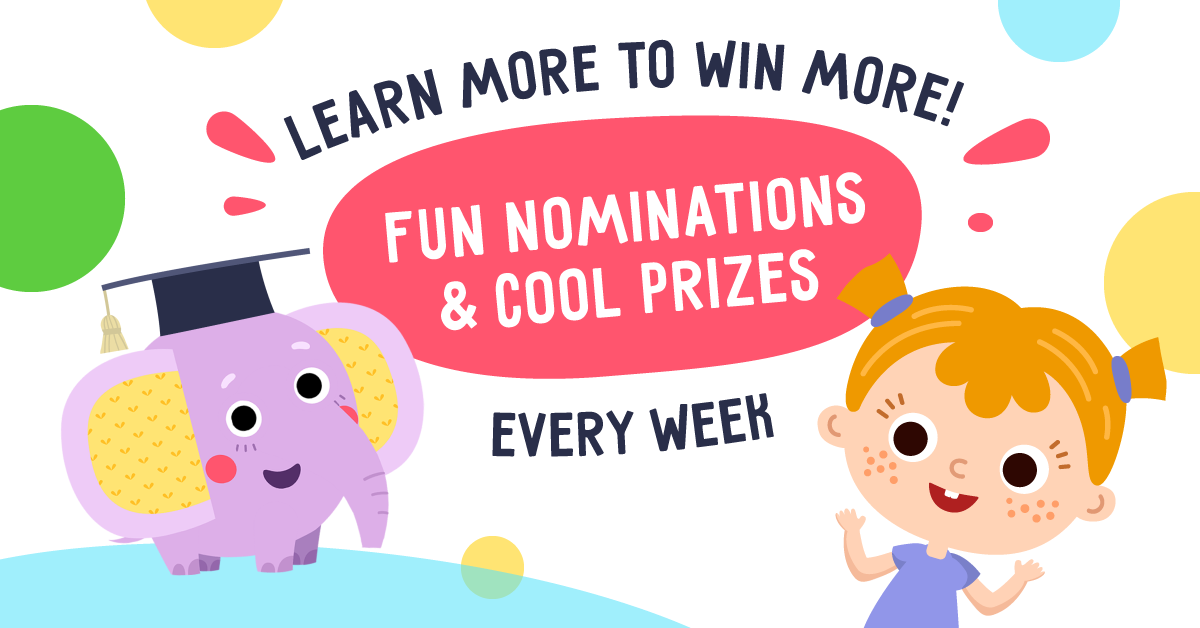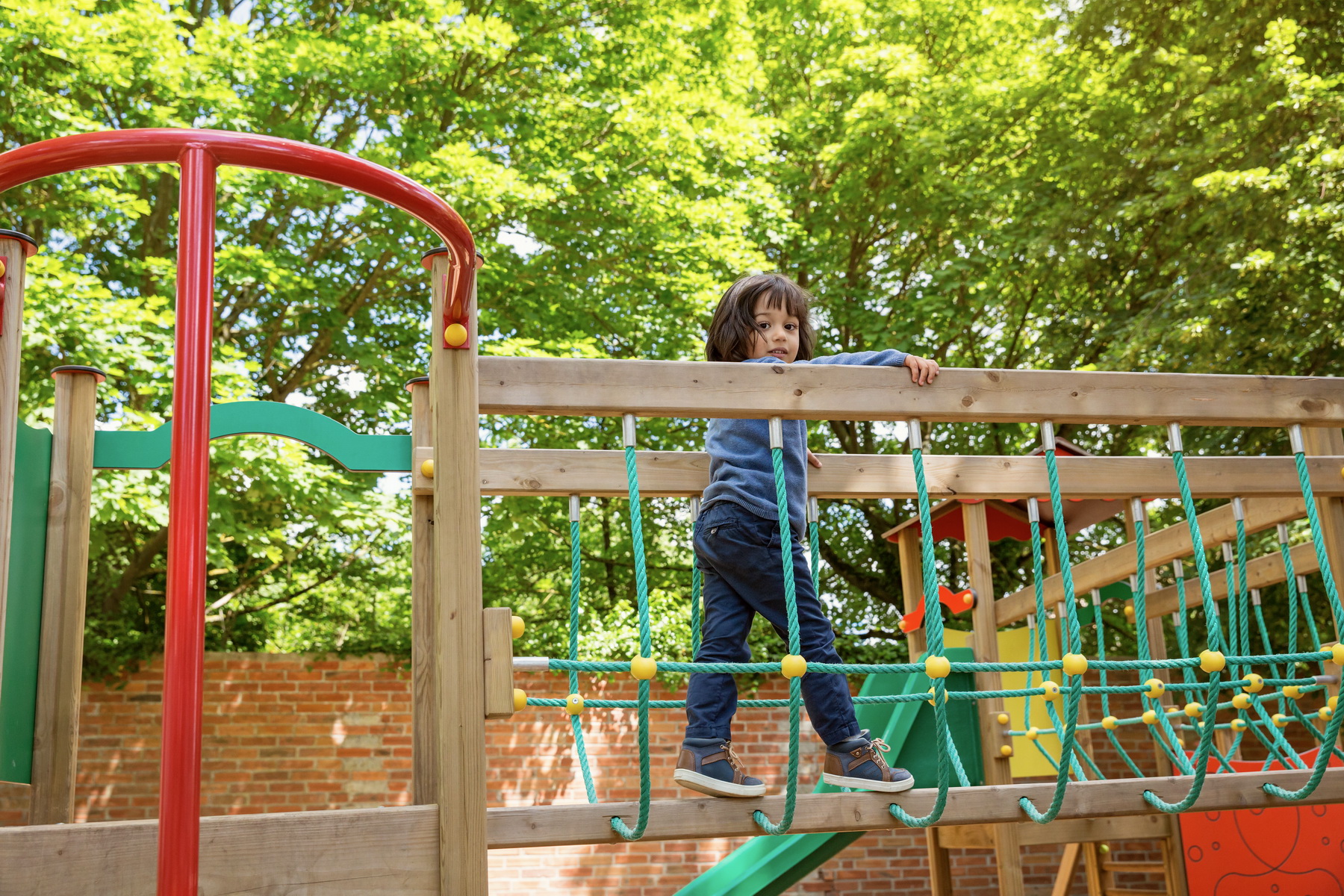Observation skills Normal Worksheets for Ages 3-6
6 filtered results
-
From - To
Enhance your child’s learning experience with our Observation Skills Normal Worksheets for ages 3-6! Designed to encourage young learners to observe, compare, and analyze their surroundings, these engaging worksheets will help develop essential skills through fun activities. Our thoughtfully crafted exercises promote critical thinking, attention to detail, and visual discernment, making them perfect for preschool and kindergarten. Each worksheet features colorful illustrations and interactive tasks that keep kids entertained while fostering a curiosity about the world. Download and print these valuable resources today to support your child’s early learning journey and build a strong foundation for future academic success!
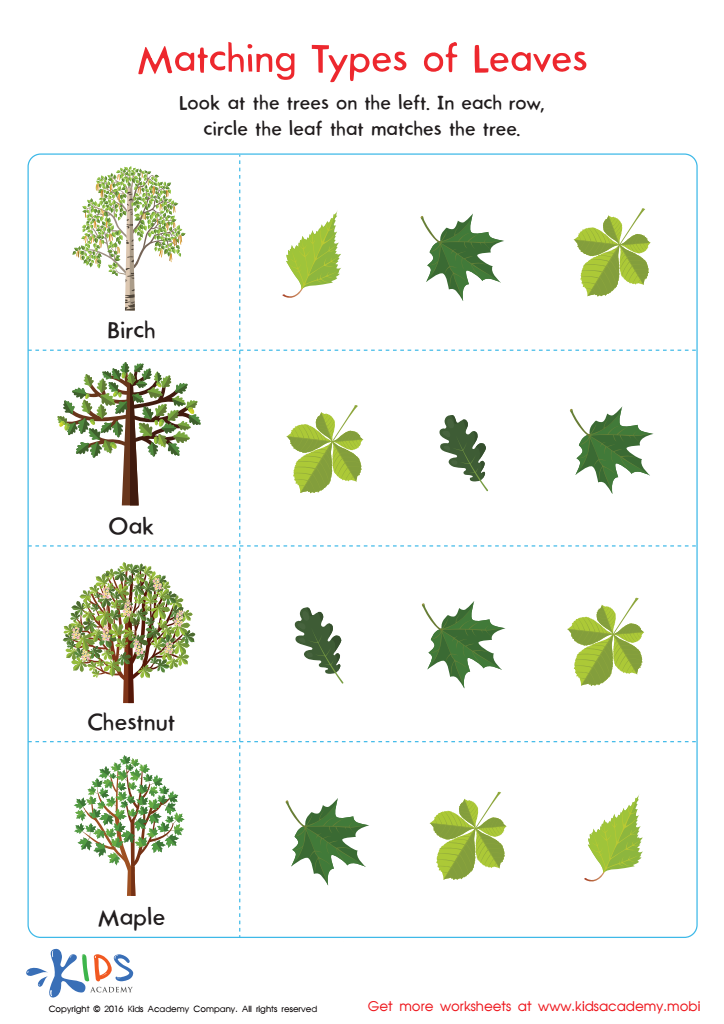

Matching Types of Leaves Printable


The 5 Sense Scientist Worksheet
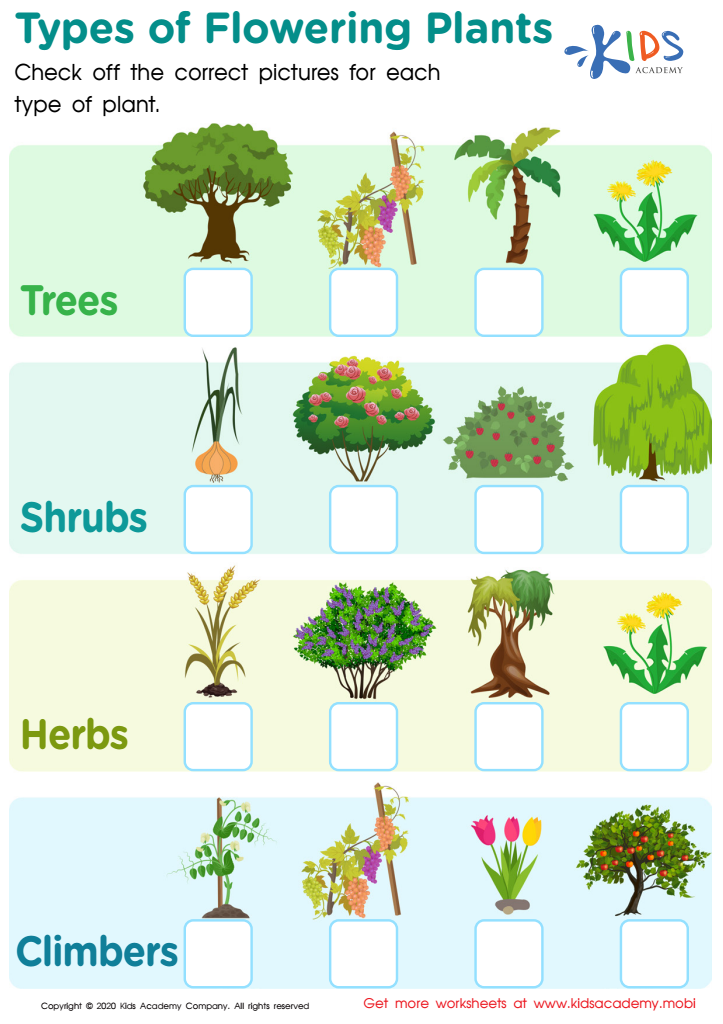

Types of Flowering Plants Worksheet
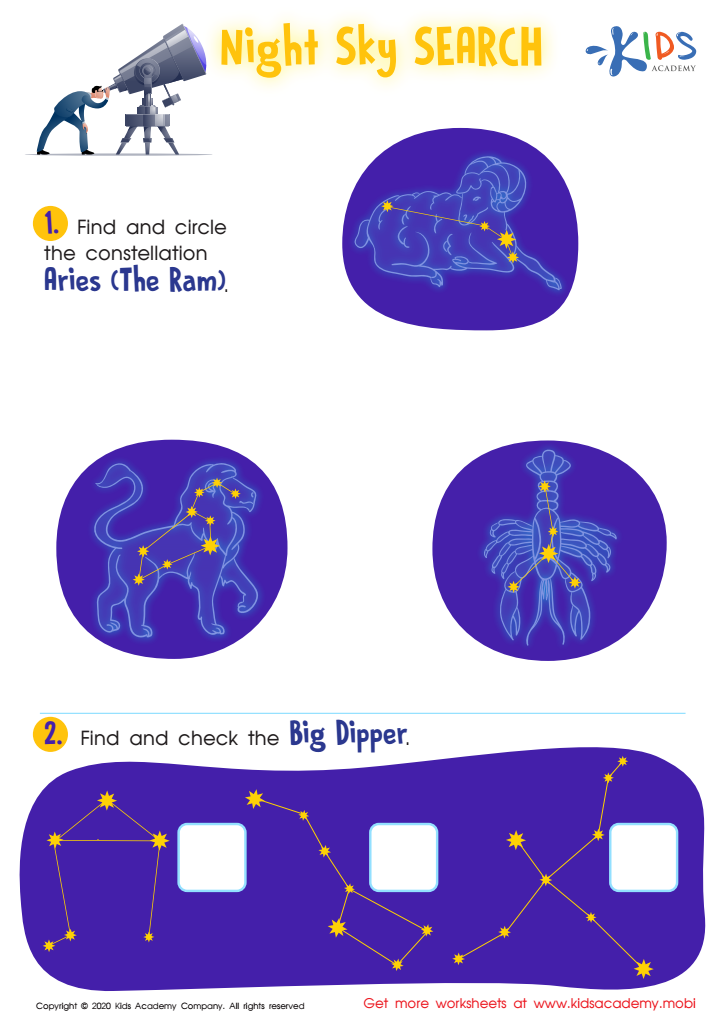

Night Sky Search Worksheet
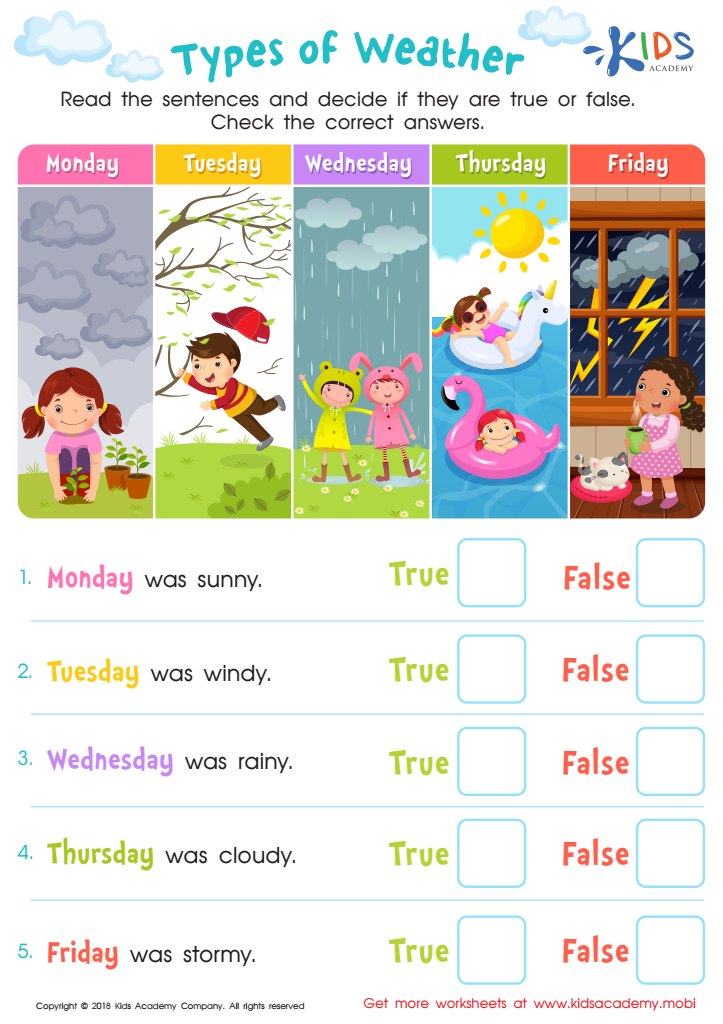

Types of Weather Worksheet
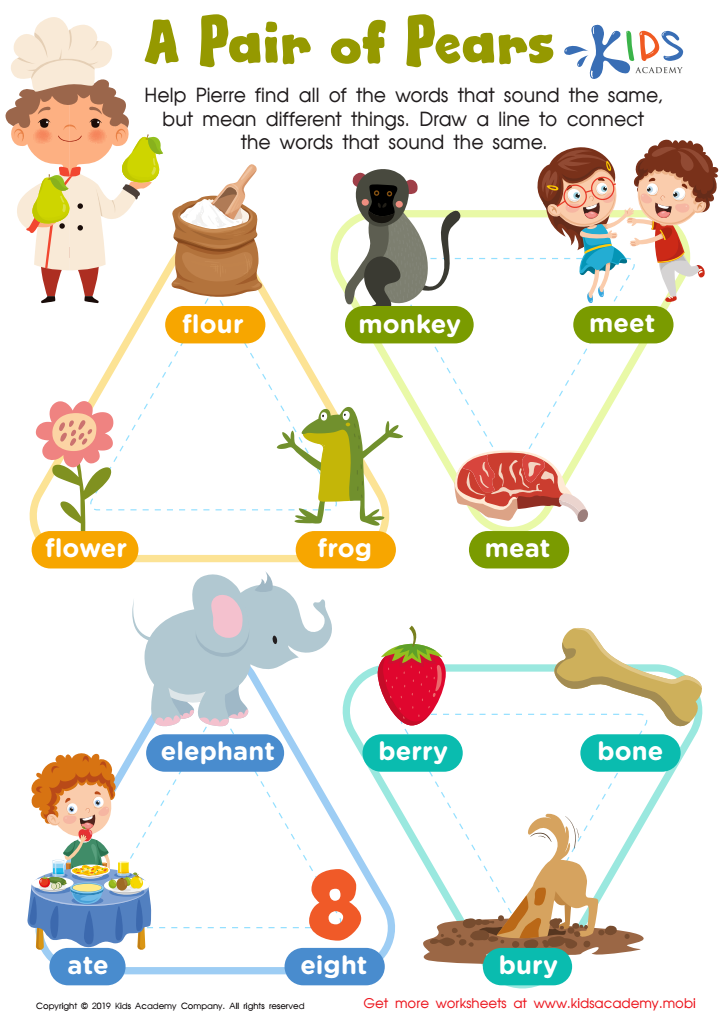

Pair Pears Worksheet
Observation skills are crucial for children aged 3-6, as they form the foundation of learning and development. For parents and teachers, fostering these skills is essential for several reasons. Firstly, strong observation skills encourage children to engage with their environment, enhancing their ability to explore, analyze, and comprehend the world around them. This exploration promotes critical thinking and problem-solving abilities that will serve them throughout their educational journey.
Secondly, observation activities aid in the development of language skills. By observing and discussing their findings, children expand their vocabulary and improve their communication abilities, which is vital for social interactions and academic success.
Additionally, observation skills can help adults identify a child’s interests, strengths, and areas needing support. This insight allows for tailored learning experiences that cater to individual needs, promoting a more personalized and effective teaching approach.
Lastly, fostering observation skills in early childhood encourages independence and self-regulation, as children learn to pay attention to details and make informed choices based on their observations. Overall, nurturing these skills enriches children’s learning experiences and prepares them for future challenges, making it a vital focus for parents and educators alike.
 Assign to My Students
Assign to My Students





